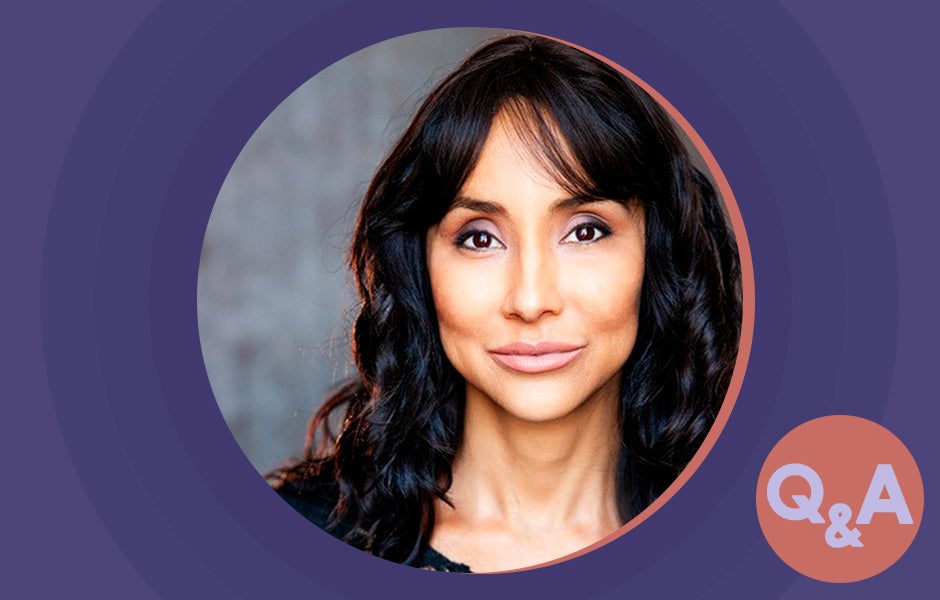
Carolina Hoyos (she/they) is a queer Two Spirit multi-hyphenate artist. She is a first generation Peruvian-Ecuadorian Afro-Indigenous Latine of Quechua-Kichwa with Moche-Inca-Pima descent, and a talented voice artist, actor, musician, writer, and director.
In celebration of Native American Heritage Month, we chatted with Carolina about the importance of representation, getting history right, and what’s next in their listening queue.
PRHA: Do you have a process for choosing audiobook projects/are there genres or themes you find yourself drawn to? How do you prepare for recording once you’ve been cast?
I am a sucker for anything in the thriller/mystery, fantasy, and horror genres, but also anything I can learn from, so if it’s a historical piece, I’m intrigued.
When it comes to preparing, I’m often provided some research between the author and publisher that covers pronunciations and/or accents. As I record, we mark the different character voices as they come up so that we can go back and reference them, especially if recording takes a few days.
On the rare occasion that I self-record, I’ve realized that narrating horror at night can be scary when I’m really getting into it, so I schedule those reads during daytime hours to be sure I’m too tired by nightfall to continue recording!
PRHA: Blood Sisters is gripping mystery fiction, but it’s also an intense, character-driven story with very serious true crime elements. Is there a scene that was particularly impactful for you to perform as a narrator?
Many of the scenes at the compound where the action amped up and key pieces to the puzzle were revealed were riveting to me. I love being able to switch into different characters and really paint the picture by distinguishing each one.
PRHA: November is Native American Heritage Month; what does representation in the audiobook field mean/look like to you?
A lot of our recorded history, not just in written form, was destroyed throughout colonization, but our oral histories remained. Narrating our stories in such a far-reaching form of media is one way for us to fulfill our ancestor’s wildest dreams.
PRHA: You recently narrated Colonization and the Wampanoag Story, which is the history of how America as we know it began from the perspective of the New England Indigenous Nations. What was it like to narrate such an important history for young listeners?
I’m excited every time we can learn history from a new perspective. My least favorite subject in school was History/Western Civilization, being that history has been rewritten by conquerors. I was taught as a young girl growing up in Virginia that my own people were extinct and, to this day, there are full grown adults who still believe that Natives do not exist.
The more we can show up and keep telling our stories, the better for our youth, especially those that have been displaced and can potentially find their way back to connecting with their culture.
PRHA: What is one audiobook you think everyone should listen to during Native American Heritage Month?
There’s too many to recommend but I’m going to go with my next one in queue: Never Whistle at Night: An Indigenous Dark Fiction Anthology!
PRHA: And last but not least, when recording, what’s the one thing you bring with you into the studio that you couldn’t do without?
My Funny or Die mug that my dog won in a Halloween costume contest (she was Yoda) is with me in every session. Without soothing sips of tea in between sips of water, my throat wouldn’t be happy narrating for hours on end.